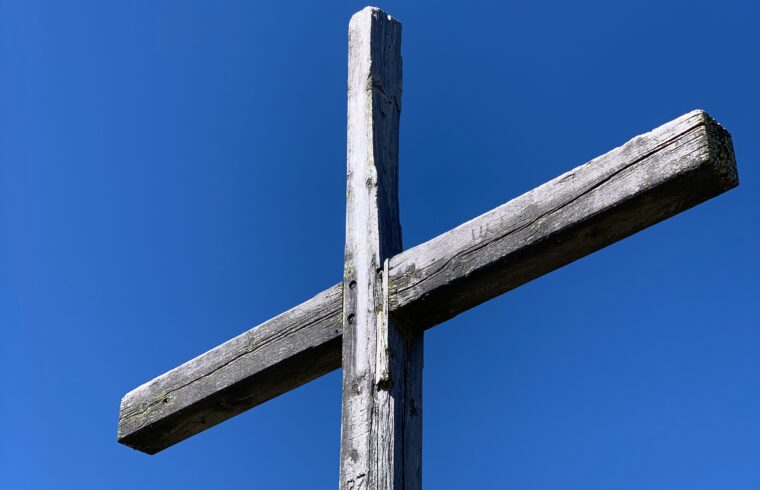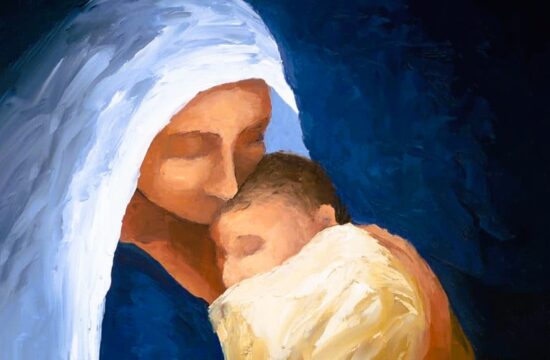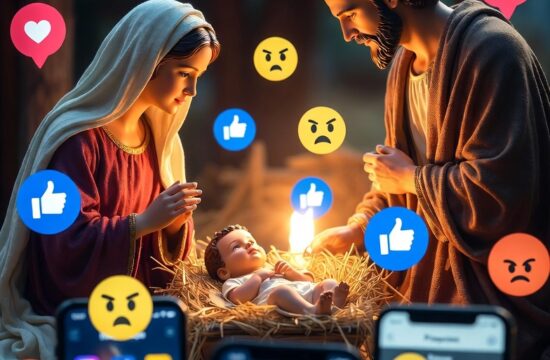Every now and then, we hit a Gospel reading that makes people squirm in the pews. Today’s is definitely one of those. You’ll sometimes hear priests try to soften it—maybe throw in a joke about Jesus “having a bad day,” or even apologize for His words. I get it. Just hearing the word “hate” in church can be triggering for some—and the fact that it’s directed at those we consider the most intimate, personal relationships: father, mother, wife, children, brothers and sisters—widens that circle of discomfort.
Thank you for taking the time to read this homily for the 23rd Sunday in Ordinary Time (September 7, 2025). Your support means a great deal to me, and I’m deeply grateful for the many who share these messages with their friends, families and social media followers. If you’ve found meaning in these words, I’d be grateful if you’d share them with others who might benefit.
And for those who prefer listening, you can find the audio version on SoundCloud HERE or subscribe to the podcast on iTunes HERE. Your comments, messages, and the way you’ve embraced these homilies continue to inspire me. Sincerely in Christ -Father Ji
And honestly, it feels like everywhere you go, everyone’s on edge. The same tech companies that created algorithms to predict what you’ll buy, where you’ll shop, what you’ll watch—even what clothes you’ll wear—are now curating presentations for priests, telling us what our congregations want to hear: what’s safe, what’s off-limits. I clicked through the PowerPoint, and sure enough, they suggest sidestepping Gospel passages like this one, preaching on a general theme, or turning to another reading. But the truth is, today’s other readings have their own landmines—like the fact that, in the second reading, we heard about slavery. No matter where you turn, you bump into something uncomfortable.
I’m not saying this to stall or make excuses. I know I’ve been tempted in the past to avoid the hard stuff or to “explain away” Jesus, making Him sound softer or more palatable. For the times I’ve done that, I need to apologize and repent. That’s not why you’re here. You’re here for the Word of God—who is Jesus Himself. And sometimes, He wants us to be uncomfortable. In fact, as American Catholics, I think we need to be.
Somewhere along the line, we started treating our faith like a self-help program. We make jokes about “Catholic guilt” and act like our faith is something embarrassing. We compare our homilies to feel-good sermons or motivational speeches at other churches and think that’s the standard.
But then, out of nowhere, something shatters our comfort—like the horror in Minneapolis just two weeks ago, when violence struck a Catholic parish in the middle of Mass. Suddenly, the world flips the story on its head. The one who unleashed the violence is painted as a victim, and his diabolical works become almost an afterthought to all kinds of talking points and debates. Meanwhile, the ones who suffered—those who were simply trying to worship—have their pain dismissed, their faith ridiculed. And we’re left staring at the headlines, asking ourselves: When did truth become so distorted? When did we stop defending what’s right, even in the face of evil?
It’s moments like that—when the world seems to have lost its moral compass—that force us to look in the mirror and ask what kind of disciples we really are.
When Jesus speaks those hard words in today’s Gospel, He’s not just talking to the crowds two thousand years ago. He’s talking to us, right now. He’s asking: Will you follow me even when it means being misunderstood, even when the world calls right wrong and wrong right? Will you stand with Me, even if it costs you everything?
That’s what He’s getting at with that word that makes us uneasy—“hate.” Jesus isn’t telling us to despise our families or ourselves. He isn’t asking for malice or cruelty. That would contradict everything else He taught. What He’s doing is drawing a stark line: Who comes first in your life? If it ever comes down to a choice—God or anyone or anything else—who gets your loyalty? And to make the point even more essential, Jesus uses the relationships we cherish most. If it were God or our car, the answer would (hopefully) be obvious. But when it’s Mom or Dad, son or daughter, wife or husband, the question itself feels almost unfair or cruel. And that’s why we need to wrestle with it and sit with it.
The answer has to be God. Because anything other than Him is a creature or a part of creation. The Creator has to come first. Of course we love our parents—honoring them is one of the Ten Commandments. Of course you’re called to love your spouse—in marriage, you’re supposed to lay down your life for each other. Of course you love your children—they are like hearts beating outside of yourselves. But the only way those loves flourish is by being in right relationship with God. It’s His life, His grace working through us that makes it possible to love the people closest to us especially in those moments we might not particularly like them. And if it’s not, either those relationships suffer brokenness, or they become idols—where we become possessive of other people.
And when Jesus says we have to “hate even our own life,” He’s not calling for self-loathing. He’s calling for a radical reordering. He’s saying, “If you want to follow Me, you have to be ready to lose everything. Your comfort, your approval, even your self-preservation—nothing can come before Me.” That’s the real cost. It’s steep. And if we’re honest, most of us would rather not pay it.
That’s why Jesus uses language that shocks us awake. He wants us to know what we’re signing up for. “Whoever does not carry his own cross and come after me cannot be my disciple.” Not “whoever shows up for Mass when it’s convenient,” or “whoever fits me in around their schedule.” He says, “Carry your cross.” Every single day.
This is demanding. It’s supposed to be. Remember the first reading from Wisdom? The author admits that humans are timid, our plans are shaky, we second-guess ourselves. We like to keep our options open. But Wisdom asks the pivotal question: “Who can know God’s counsel?” Only those who open their hearts, who are willing to let God lead—even if it means letting go of what we cling to.
And let’s get brutally honest about what this means for us here, in America. For a lot of us, the bar is so low that just making it to Mass feels heroic. We tell ourselves, “At least I showed up. God should be grateful.” Meanwhile, across the world, Catholics are risking their lives just to do what we’re doing right now. In China, believers sneak into underground churches, knowing they could be arrested. In Syria, families go to Mass even though violence could break out at any moment. In Nigeria, priests are kidnapped, sometimes killed. In Gaza, the small minority of Christians refuse to abandon their churches even as buildings are bombed. Still—they gather. Not because it’s easy or safe, but because Jesus is worth it.
So what about us? What are we willing to risk for our faith? Are we willing to be misunderstood? To lose friends? To speak the truth when it costs us? Or are we just looking for a gentle, feel-good Christianity that challenges nothing and changes nothing?
That’s what the world wants us to settle for—a faith that’s comfortable, that doesn’t ask for sacrifice. But Jesus is clear: “Anyone of you who does not renounce all his possessions cannot be my disciple.” And He’s not just talking about money or stuff. He means anything that comes between us and Him—our pride, our comfort, our reputation, even our dreams.
Let’s look at the second reading, the other “triggering” thing we’re tempted to avoid. We heard a letter from St. Paul to a man named Philemon. Paul asks his friend to receive Onesimus, a runaway slave, not as property but as a brother. This is a passage where critics sometimes try to discredit Christianity, saying Paul didn’t go far enough because he didn’t outright condemn that horrific practice of slavery. But that misses the point. Paul was working to win people over, one soul at a time. As he reaches out to his friend, St. Paul is saying, “Discipleship is bigger than social norms, bigger than economics, bigger than old grudges. Let the Gospel change everything.” That’s the real test—will we let Jesus reshape our lives from the inside out, or do we just fit Him in where it’s convenient?
Counting the cost of discipleship means asking ourselves hard questions. Where have I put something ahead of Jesus? Where am I clinging to comfort instead of following Him? Where am I afraid to risk, to give, to speak up?
Maybe it’s standing up for life, even when it’s unpopular. Maybe it’s forgiving someone who doesn’t deserve it. Maybe it’s being generous with your time or your money, because you see Christ in someone who needs you. Maybe it’s just being willing to admit your faith out loud.
We’re confronted with those challenges and meant to go deeper. To ask ourselves: When was the last time we made a real sacrifice for our faith? Not just giving up chocolate for Lent, but something that actually costs us? When did we last take a bold risk for Jesus?
These are questions I wrestle with myself, because I’m not immune. I’m just as tempted by comfort and approval as anyone. But Jesus won’t let us off the hook. He’s asking for everything. Because He gives everything on the Cross. And He promises that what He gives in return is worth more than anything we leave behind.
And that brings us to the heart of it: the cross isn’t the end. Sacrifice isn’t the end. Jesus leads us through the cross to the empty tomb, to resurrection, to real life. The saints, the martyrs, the persecuted—they know this. They know the cost, and they know the reward. Nothing compares to the love of Christ.
So today, let’s refuse to settle for a faith that asks nothing of us. Let’s ask God for the courage to pick up our cross—whatever form it takes—and the grace to put Jesus above everything else. Let’s remember our brothers and sisters around the world who risk everything for Christ, and let’s have the honesty to ask ourselves: If it were us—if it really cost us something—would we still follow?
Let’s count the cost, and then choose Him anyway. Because in the end, when everything else fades, there is nothing—nothing—more precious, more necessary, or more life-giving than Jesus Himself.











